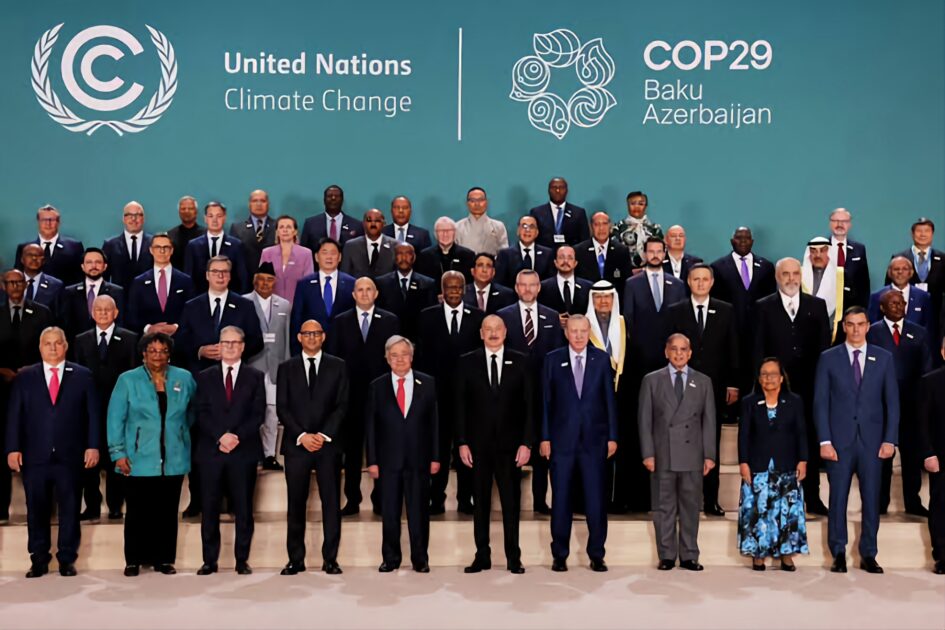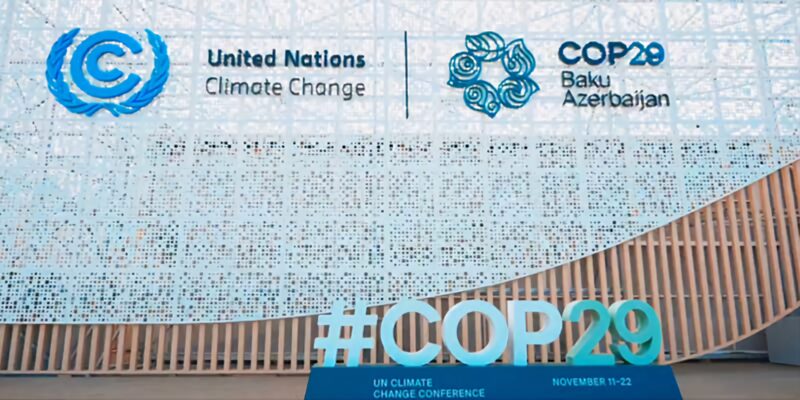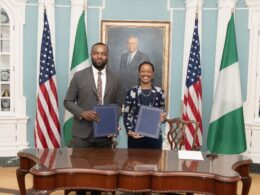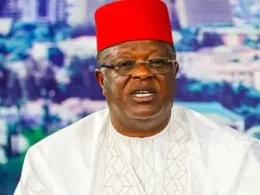Historic $300 Billion Climate Deal Aims to Support Vulnerable Nations, Replace Expiring Funding, and Accelerate Global Action by 2035
BAKU, AZERBAIJAN — After weeks of tense negotiations, the United Nations has brokered a groundbreaking $300 billion climate deal aimed at aiding developing countries in tackling the escalating impacts of climate change.
The new annual funding goal, unveiled during the COP29 climate talks in Baku, will replace the current $100 billion commitment, which is set to expire next year. Delegates also set an ambitious target to raise at least $1.3 trillion annually by 2035.

“This agreement must be honored in full and on time,”
U.N. Secretary-General António Guterres said, acknowledging the significance of the deal while expressing frustration at its lack of greater ambition. He urged wealthier nations to deliver the funds promptly and in cash to ensure meaningful progress.
Walkouts Amid Heated Debates
The path to the agreement was far from smooth. Representatives from the Alliance of Small Island States staged a dramatic walkout during the summit, citing dissatisfaction with the pace and direction of the talks. The U.N. acknowledged the tense atmosphere but emphasized the importance of reaching a consensus.
Pressure from Developing Nations
Developing countries viewed COP29 as a crucial platform to push wealthier nations to step up their support. These nations, often excluded from top-level global discussions, argued that they are disproportionately affected by climate change despite contributing minimally to global emissions.
“This deal is a step forward,” Guterres said,
calling for collective global action to meet the agreement’s upper funding goals.
The success of the deal now hinges on developed countries delivering on their promises, with the clock ticking as climate challenges grow more severe.










Join our Channel...